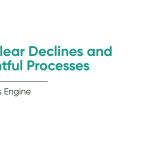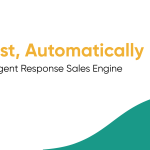
June 16, 2021
Facebook Ads Marketing for Estate Agents – How To Guide
Setting up Facebook ads for Lead Generation
Facebook is a fantastic social media platform for Estate Agents, where they can slot in with the community and provide value to their followers. Whether Facebook users are on the property search or not, many are interested in content produced by Estate Agents (mainly to be nosey!) which allows for successful insights to the business page, and a great opportunity to build relationships with future potential vendors. Although organic content is extremely important for business pages on Facebook, running paid ads is crucial for any successful page- to generate leads and build on your CRM.
Lead Generation Ads
To generate leads through Facebook, we promote ValPal. If you are an Estate Agent, I’m sure you’re familiar with Valpal, but if you’re not, Valpal is an online property valuation tool that is embedded into your website, allowing potential vendors to receive an estimated value of their home in exchange for their data.
Audience
Before setting up the ads on Facebook, you need to create your audiences. This is because your ad creative may alter depending on whom you are targeting.
If you have a website, a Facebook pixel should be set up so you can take full advantage of your valuable web visitors. Setting up a Facebook Pixel is easy, and you can find out more about this here.
By having a Facebook Pixel embedded into your website, you can create audiences in your Ads Manager based on your web visitors activity on your site. You can of course target all web visitors within a certain period, however if it better to be more specific so you know which pages have the warmest audiences, which will then produce better quality leads.
Our best performing ads are often when we retarget web users who have visited our ‘House Prices’ pages. These pages provide data on the average house prices in certain areas; therefore we know that the user probably has a house in this area, which they are curious about the value. Other ideas include blog posts specifically for people who may be thinking of moving house, for example, an article on the current property market, or whether now is a good time to sell.
Once you have created audiences based on web visitor's activity, you can select locations you want each ad to perform in, and the demographics, including age range.
If you don’t have much web traffic, it is a good idea to put a marketing strategy in place to build this. This is not a quick process, however is potentially invaluable to the success of your business. In the meantime, you can remarket to Facebook users instead. This could be users that have visited your page, engaged with your content, or you can even create lookalike audiences to your Facebook followers.
Setting up Valpal ads
When creating a campaign for valpal leads in Facebook Ads Manager, select conversions as the campaign objective. This will base the performance of the ads on how many Facebook users it has converted. Within the campaign, you can create however many ads you like based on how many separate audiences you want to target. This is likely to be however many offices you have. In the example below, you can see there are 7 ads within the Valpal campaign – one for each office.

If you are just starting with Valpal ads, you may not be sure how much to spend, or how much it costs per conversion. This cost will depend on many variants including location, population size, audience size, the climate of the property market, population demographics, and many more. We have found the average cost of the Valpal lead varies through Facebook; however, it is always under £5, which is something you should be aiming for. Because of this, it is recommended you have a budget of £5 per ad per day as a starting point. This can be adjusted at any time.
In terms of ad creative, the Facebook user needs to recognise the image used. In the screenshot below, you can see a property image is used. This is a ‘typical’ property found in this town, which tends to perform well in this area as the locals recognising it. Other suggestions include local landmarks or other areas of interest in that area.

The text included should be interesting, as you want the ad to be positioned as providing value, rather than asking for the business. A good example of this is house prices. By providing such valuable information, which any homeowner would be interested in, they are more likely to click the call to action and find out more. For example ‘Did you know house prices in *town name* have increased by up to 8% in the last 12 months? Click the link below to find out how much your home is worth in the current market’.
It is incredibly important to refresh your ads every so often to avoid creative fatigue. Every month, put an hour in your diary to update images to more recent photographs, and try a different text to see how it compares.
Competitor Analysis
If you want to see what other agents in your area are doing on Facebook, their ads are public knowledge due to Facebook’s page transparency policy. On another agent’s business page, scroll to page transparency then click on see all. Facebook Business Manager will pop up which includes all the ads that particular page has running. Even though this is a valuable exercise for local agents, it is also a good idea to use on the larger nationwide Estate Agents, to get an idea of what lead magnet techniques/ads they are using, as they are more likely to have a department of marketing professionals focusing solely on these ads and monitoring the performance.

We hope this blog is useful in generating leads for your Estate Agency. As mentioned throughout, campaign performance will differ depending on lots of variables, therefore what works for one agent may not work for another. It’s all about trial and error and testing what works best for your business.
Paid ads are just one part of social media marketing, and there is a whole range of other activities your agency should be doing alongside these ads on Facebook, which will be explained in future blog posts.




